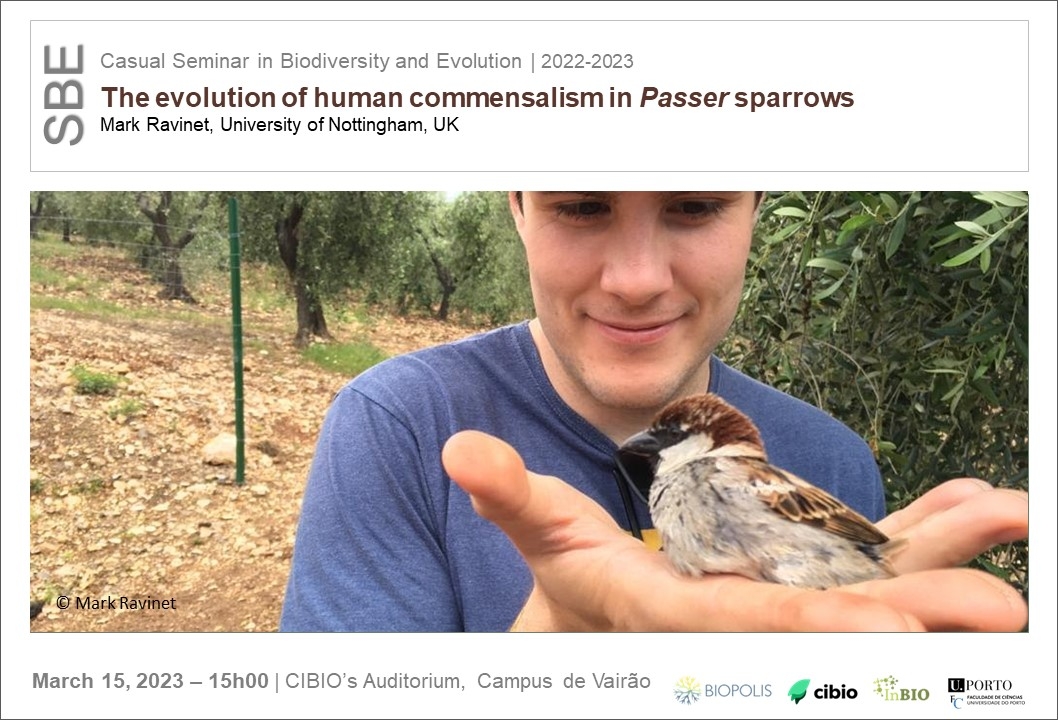The evolution of human commensalism in Passer sparrows
15 Mar 2023 - Mark Ravinet, University of Nottingham, UK | 15h00 - CIBIO-InBIO’s Auditorium, Campus de Vairão

CASUAL SEMINAR IN BIODIVERSITY AND EVOLUTION
From early civilization to the development of modern cities, human activity has shaped the evolution of other species. Some taxa are able to survive, adapt and even thrive in an anthropogenic niche. Human commensal species are a special case, having evolved a dependency on human resources without our direct influence. Intriguingly, human commensal relationships have arisen multiple times across many different species and even in parallel within the same genus. What factors drive the evolution of human commensalism? Is it a case of being in the right place at the right time? Or are there particular (pre)adaptations, traits and genes that mean some species are better able to exploit human resources than others? To address these questions, I will focus on the remarkable case of Passer sparrows which appear to have repeatedly adapted to human environments.
Mark Ravinet is currently Assistant Professor of Adaptation to the Environment at the University of Nottingham, UK. He is broadly interested in speciation and adaptation. Most recently, his work has focused on how human activity has unintentionally shaped the evolutionary trajectories of other species, particularly driving the adaptation to a human-commensal niche. To achieve this he uses population and evolutionary genomics alongside field research.
Mark Ravinet is currently Assistant Professor of Adaptation to the Environment at the University of Nottingham, UK. He is broadly interested in speciation and adaptation. Most recently, his work has focused on how human activity has unintentionally shaped the evolutionary trajectories of other species, particularly driving the adaptation to a human-commensal niche. To achieve this he uses population and evolutionary genomics alongside field research.
[Host: Martim Melo, 21st Century Conservation Lab - LACOS21]